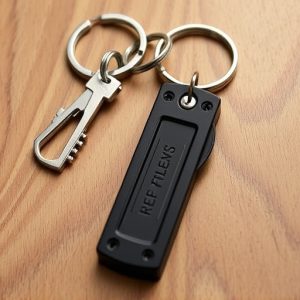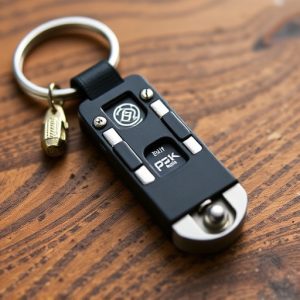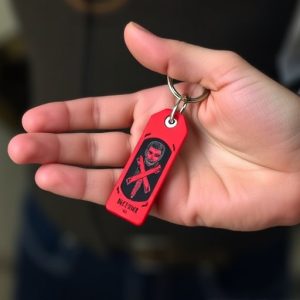Compact Keychain Self-Defense: State Legal Requirements and Best Practices
The legal status of compact keychain self-defense tools varies greatly across US states, with regula…….
The legal status of compact keychain self-defense tools varies greatly across US states, with regulations focusing on tool type, capacity, and permits/registration. Before carrying one publicly, users must verify their state's specific laws, as devices like pepper spray, stun guns, and tactical flashlights fall under different categories and have varying restrictions. Understanding these laws, device operation, and local carry restrictions is crucial for effective and legal use of compact keychain self-defense tools.
“Uncover the legal intricacies surrounding compact keychain self-defense tools with our comprehensive guide. In today’s world, personal safety is paramount, and these small yet powerful devices offer an accessible defense option. We explore the Legal Framework for carrying keychains as self-defense tools, reviewing Types of permitted equipment and their legal status. Furthermore, we delve into state-specific regulations, ensuring you’re informed about best practices for carry and use across different U.S. states. Stay prepared and stay safe.”
- Legal Framework for Carrying Compact Self-Defense Keychains
- Types of Permitted Self-Defense Tools and Their Legal Status
- State-Specific Regulations and Best Practices for Carry and Use
Legal Framework for Carrying Compact Self-Defense Keychains
In many jurisdictions, the legal framework surrounding compact keychain self-defense tools is evolving to reflect the growing popularity and need for personal safety devices. These small, easily concealable gadgets offer a convenient way for individuals to protect themselves in various situations. However, it’s crucial to understand that laws vary widely from state to state, with some areas having more stringent regulations than others.
Carrying compact keychain self-defense tools is generally legal across the United States, but specific restrictions apply. Several states have explicitly legalized these devices as a form of personal protection, while others have included them in broader categories of allowed defensive weapons. Regulations often center around factors like the type of tool (e.g., pepper spray, stun guns), capacity, and any requirements for permit or registration. Always check your state’s specific laws to ensure compliance before carrying a compact keychain self-defense tool publicly.
Types of Permitted Self-Defense Tools and Their Legal Status
In many jurisdictions, compact keychain self-defense tools are recognized as legal and permitted for personal protection. These devices, often designed to fit comfortably on a keyring, can take various forms such as pepper spray, stun guns, or tactical flashlights with high-intensity beams. The legality of these tools is typically governed by state laws, which outline specific requirements regarding size, capacity, and allowable levels of force. For instance, some states allow only non-lethal self-defense devices while others permit a broader range of options.
It’s crucial for individuals considering carrying a compact keychain self-defense tool to understand the legal implications in their state. This includes knowing the permitted types of devices, any restrictions on capacity or force, and the potential consequences of unauthorized possession. Staying informed about these legal requirements ensures that citizens can exercise their right to self-defense while adhering to the law.
State-Specific Regulations and Best Practices for Carry and Use
In the United States, the legal landscape surrounding compact keychain self-defense tools varies significantly from state to state. While federal law does not explicitly regulate the carry or use of such devices, individual states have enacted their own specific laws and guidelines. Understanding these state-specific regulations is crucial for anyone considering carrying a compact keychain self-defense tool for personal safety. Each state has its own definition of what constitutes an acceptable self-defense tool, with some allowing only certain types of pepper spray or stun guns, while others may have more inclusive provisions.
Best practices for carry and use should also be considered beyond legal requirements. Given the compact size of these tools, it’s essential to familiarize yourself with the device’s operation before needing to use it in an emergency situation. Regular practice and training can ensure you are comfortable and confident in its deployment. Additionally, being aware of local laws and regulations regarding public carry permits or restrictions is vital to avoid legal issues. Remember that while compact keychain self-defense tools offer a convenient option for personal safety, their effectiveness depends on proper usage and adherence to both state law and best practices.
Understanding the legal framework surrounding compact keychain self-defense tools is essential for citizens looking to protect themselves. With varying state regulations, it’s crucial to know what’s permitted and how to use these tools responsibly. By familiarizing yourself with the types of self-defense devices allowed and adhering to state-specific guidelines, you can ensure your rights while staying within the law. Always stay informed about local laws and best practices to effectively navigate and protect yourself in different situations.


